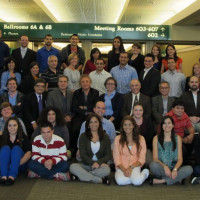
Computing Community Consortium: New Director Dr. Ann Drobnis
I am excited to take on my new role as Director of the Computing Community Consortium and lead the CCC as it emerges from startup mode into sustainability as the arm of CRA that works with the computing research community to create and enable visions for future computing research. I want to take this opportunity to introduce myself to the community as we embark on a new chapter for the CCC.









